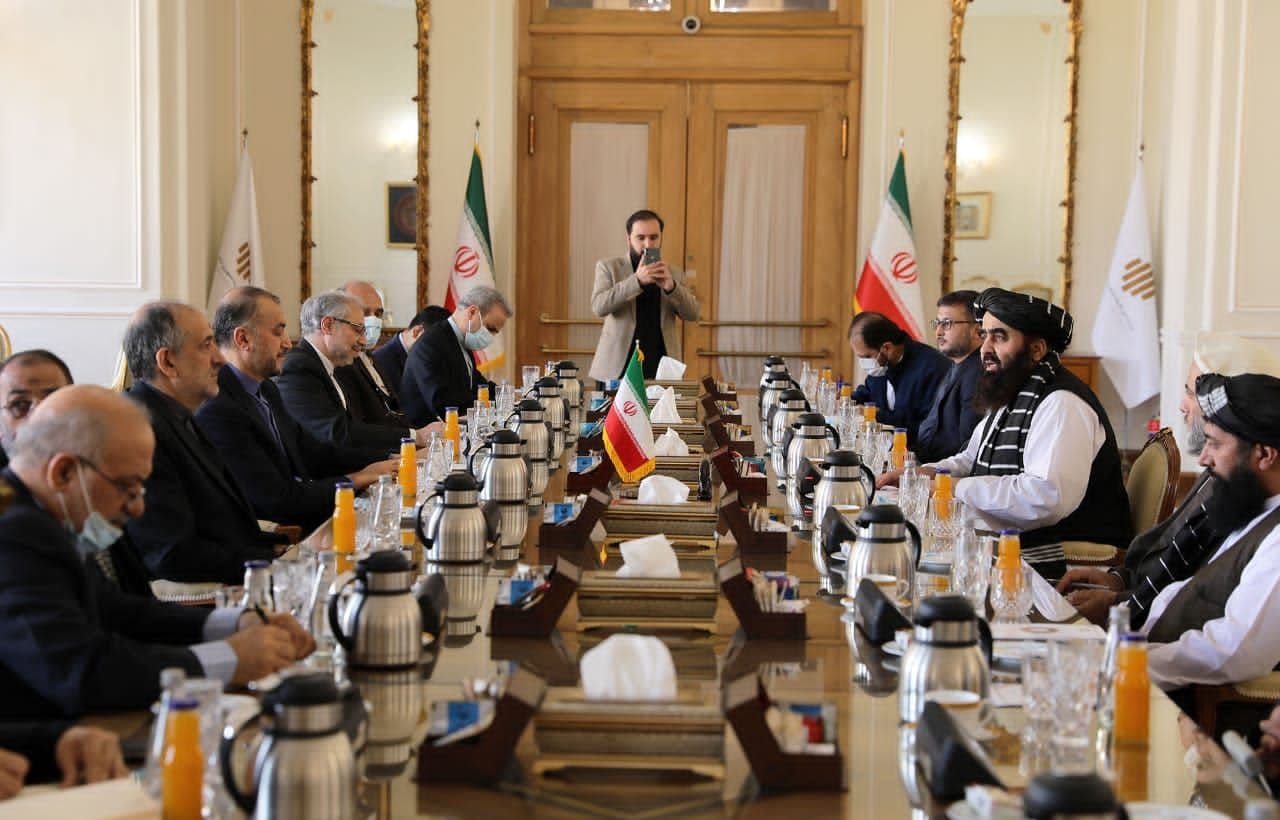Iran’s Foreign Minister Hossein Amir-Abdollahian and Amir Khan Muttaqi, the acting Foreign Minister in the interim Taliban government, have discussed inclusive government in Afghanistan, cross-border crime, migration, and water resources.
While addressing the meeting, Amir-Abdollahian praised the courage of Afghans for not allowing “any foreign power to occupy and govern” the country. He also criticized Washington’s policy in Afghanistan during the US presence in the country, Iran’s foreign ministry website reported on January 9.
According to Amir-Abdollahian, there is a need for an ethnically and religiously “inclusive” government to take power in Kabul, as well as for “acceptable indicators” in this regard.
For his part, Muttaqi stressed that “the new government of Afghanistan... is not against any neighboring country,” and thanked Iran for hosting large numbers of Afghan citizens over decades of war and instability in their home country.
While referring to the distribution of water resources between the two countries, the Afghan delegation stressed its respect for international accords, including the 1973 Helmand River Treaty. Water commissioners from both countries will reportedly meet for more detailed discussions.
Iran shares a 900-kilometer (560-mile) border with Afghanistan and hosts 3.6 million Afghan refugees. Since the Taliban’s takeover of power in Afghanistan in August, hundreds of thousands of Afghan civilians have escaped into neighboring Iran using informal border crossings.
Iran and Afghanistan have had a long dispute over the Helmand River. Tehran has long objected to the construction of the Kamal Khal Dam over this river, arguing it would contribute to the drying up of its wetlands in the Sistan-Baluchestan border province. According to Iranian experts, Lake Hamun, located on the Afghan-Iranian border, and dozens of wetlands fed by the Helmand River waters may dry up due to water intake at the Kamal Khan Dam.
Despite their historical disagreements, Iran has pledged to work with the Taliban leaders. Iran’s President Ebrahim Raisi has expressed support for establishing an inclusive government in Afghanistan.
Iran’s Foreign Ministry Spokesman Saeed Khatibzadeh said on January 9 that diplomatic activities of Afghanistan’s embassy in Tehran would continue within the framework of the principles and rules defined by the 1961 Vienna Convention on Diplomatic Relations.
Khatibzadeh’s remarks came after reports that Iran would hand over Afghanistan’s embassy to Taliban officials. While Iran has not officially recognized Taliban rule over Afghanistan, they will reportedly hand over the embassy so that Taliban officials can take care of matters concerning Afghan citizens in Iran.







 President Aliyev emphasized the critical role of the North-South Transport Corridor in fostering transport cooperation between Azerbaijan and Russi...
President Aliyev emphasized the critical role of the North-South Transport Corridor in fostering transport cooperation between Azerbaijan and Russi...
 Armenian sappers commenced on Monday mine-clearance operations in the territories adjacent to the Saint Mary Church in village of Voskepar (Armenia...
Armenian sappers commenced on Monday mine-clearance operations in the territories adjacent to the Saint Mary Church in village of Voskepar (Armenia...
 Russian Foreign Minister Sergei Lavrov has reasserted that Moscow has no intentions to stop the fighting in Ukraine, even if peace talks commence.
Russian Foreign Minister Sergei Lavrov has reasserted that Moscow has no intentions to stop the fighting in Ukraine, even if peace talks commence.
 Iran has refuted reports of alleged damage to Shimon Peres Negev Nuclear Research Centre located southeast of Dimona, Israel, during the recent air...
Iran has refuted reports of alleged damage to Shimon Peres Negev Nuclear Research Centre located southeast of Dimona, Israel, during the recent air...
 Iran’s Foreign Minister, Hossein Amir-Abdollahian, has labeled a foiled Israeli drone attack in certain parts of the country as a "failure" for Isr...
Iran’s Foreign Minister, Hossein Amir-Abdollahian, has labeled a foiled Israeli drone attack in certain parts of the country as a "failure" for Isr...



